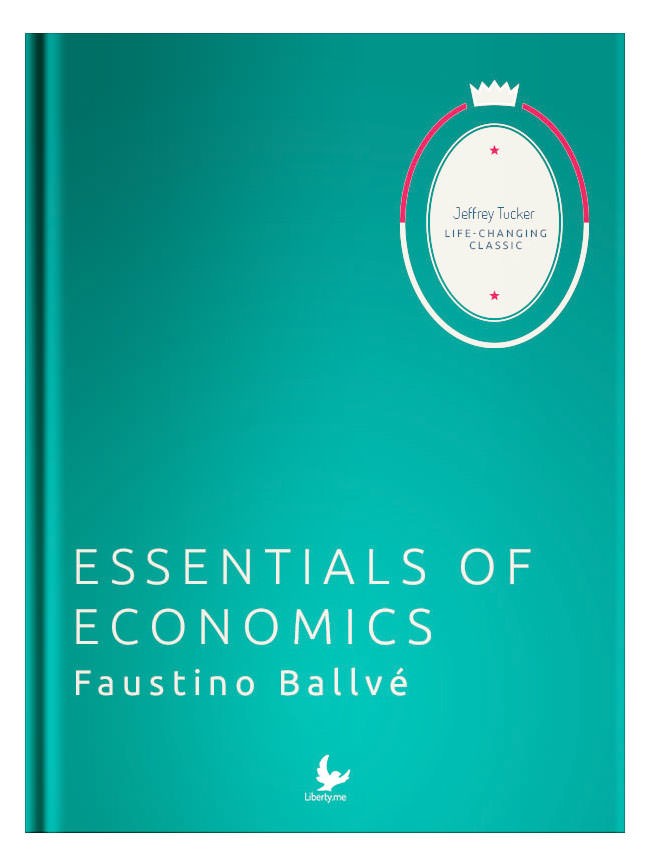
Essentials of Economics
The book offers an admirable combination of breadth and brevity, and it delivers on everything promised in the title. The reader will come away with a brief survey of the essential principles of our beloved dismal science, a bit of familiarity with the intellectual genealogy of some of the ideas, and a handful of applications. At 99 pages, Essentials of Economics is a masterpiece of efficient communication of economic ideas.
It is an ideal introduction to economic thinking for people who haven’t the time or the inclination to conquer such massive tomes as Human Action, The Wealth of Nations, or Man, Economy, and State — though I suspect that the uninitiated reader with Essentials of Economics on his nightstand or e-reader for a few days will be much more likely to read further.
By the end of the book, the reader should be convinced that, in the words of Gustavo R. Velasco’s preface to the Spanish edition, “It is not possible to escape from economics.” Ballve’s method follows in the tradition of the economists working then (and now) in the tradition of Carl Menger and Ludwig von Mises.
He begins from a set of very simple postulates — scarcity and action — and deduces from these a body of propositions that help us make sense of the world around us. Ballve writes with a passion and verve that makes sometimes dry concepts come to life. In the course of 10 short chapters, he explains to the reader what economics studies, how markets work, what entrepreneurs do, how income flows to factors of production, the origins of money and credit, the origins of business cycles, and the fallacies of protectionism, nationalism, socialism, and interventionism.
While reading, I was continually impressed with the problems we face as teachers, scholars, economic communicators, and citizens. Research on public opinion and public policy — like Bryan Caplan’s 2007 The Myth of the Rational Voter, for example — suggests that the fundamental problem with economic knowledge is not that many voters don’t understand the fine points, nuances, and subtleties of sophisticated macroeconomic models.
Rather, from all appearances, it looks like voters take issue with the most basic ideas in economics: People respond to incentives, resources are scarce, and trade creates wealth. Without getting bombastic or unnecessarily strident, Ballve reminds us how important these principles are in a translation that absolutely sparkles.

